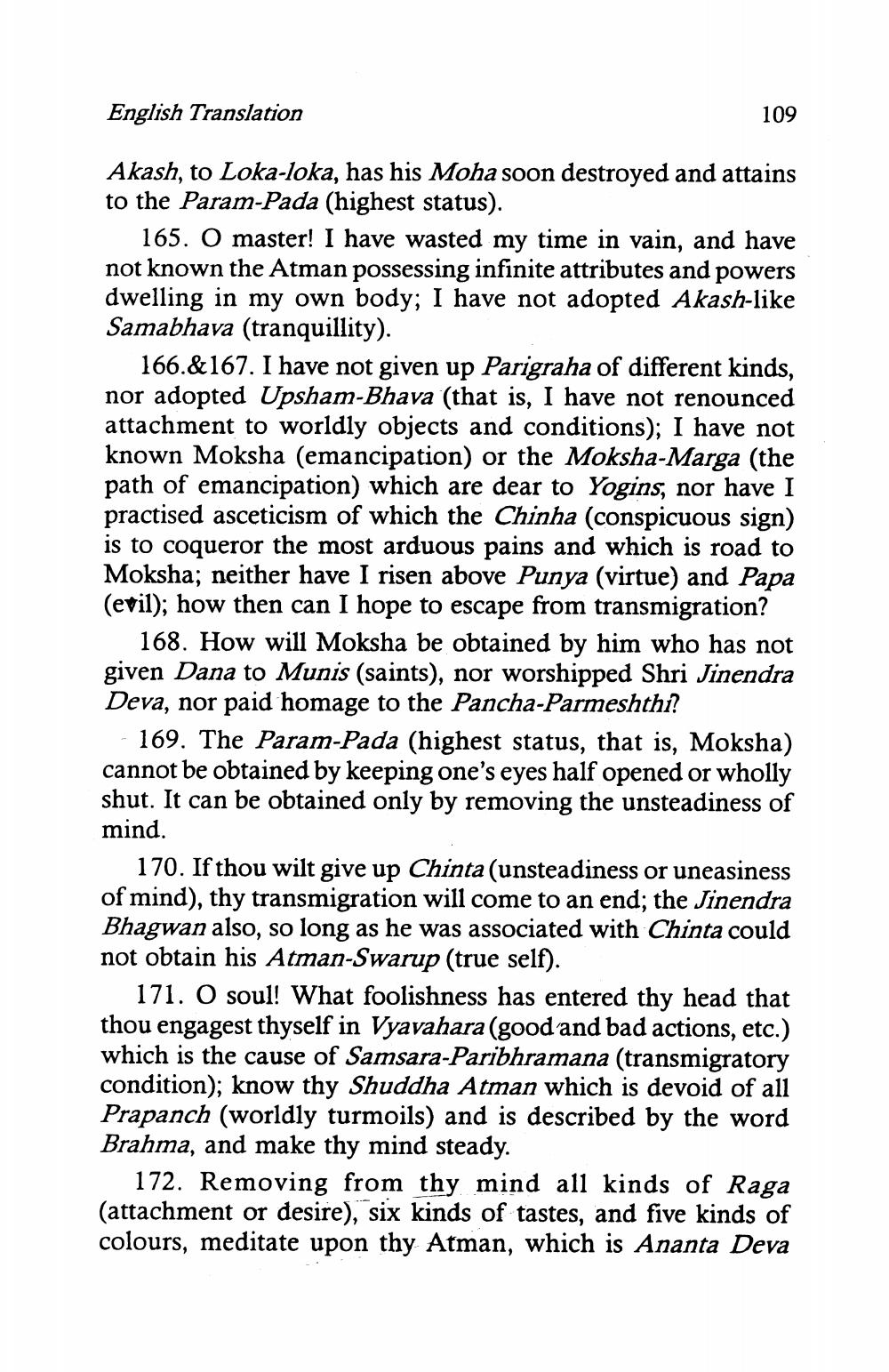________________
English Translation
109
Akash, to Loka-loka, has his Moha soon destroyed and attains to the Param-Pada (highest status).
165. O master! I have wasted my time in vain, and have not known the Atman possessing infinite attributes and powers dwelling in my own body; I have not adopted Akash-like Samabhava (tranquillity).
166.&167. I have not given up Parigraha of different kinds, nor adopted Upsham-Bhava (that is, I have not renounced attachment to worldly objects and conditions); I have not known Moksha (emancipation) or the Moksha-Marga (the path of emancipation) which are dear to Yogins, nor have I practised asceticism of which the Chinha (conspicuous sign) is to coqueror the most arduous pains and which is road to Moksha; neither have I risen above Punya (virtue) and Papa (evil); how then can I hope to escape from transmigration?
168. How will Moksha be obtained by him who has not given Dana to Munis (saints), nor worshipped Shri Jinendra Deva, nor paid homage to the Pancha-Parmeshthi?
- 169. The Param-Pada (highest status, that is, Moksha) cannot be obtained by keeping one's eyes half opened or wholly shut. It can be obtained only by removing the unsteadiness of
mind.
170. If thou wilt give up Chinta (unsteadiness or uneasiness of mind), thy transmigration will come to an end; the Jinendra Bhagwan also, so long as he was associated with Chinta could not obtain his Atman-Swarup (true self).
171. O soul! What foolishness has entered thy head that thou engagest thyself in Vyavahara (good and bad actions, etc.) which is the cause of Samsara-Paribhramana (transmigratory condition); know thy Shuddha Atman which is devoid of all Prapanch (worldly turmoils) and is described by the word Brahma, and make thy mind steady.
172. Removing from thy mind all kinds of Raga (attachment or desire), six kinds of tastes, and five kinds of colours, meditate upon thy Atman, which is Ananta Deva




